Turkey’s tight race: Polls close amid accusations of foreign interference
Polls have now closed and vote counting is underway in Turkey's momentous elections that could extend the rule of President Recep Tayyip Erdogan, the country's longest-serving leader, or end his long innings at the helm.
Parliamentary and presidential polls opened in Turkey at 8 am (0500 GMT) and closed at 5 pm (1400 GMT), with roughly 64 million people being eligible to vote, including 3.4 million overseas voters and nearly 6 million first-time voters.
The elections have posed the biggest challenge yet to Erdogan, who faces the joint opposition candidate Kemal Kilicdaroglu, amid the economic downturn and the impact of the devastating February 6 earthquake.
The outcome could significantly alter Turkey's domestic and foreign policies, which have taken unpredictable turns by the NATO-member country of 85 million.
Erdogan has cast his vote at a polling station in Istanbul's Uskuda.
“My hope to God is that after the counting concludes this evening, the outcome is good for the future of our country, for Turkish democracy,” he told reporters expressing hope that the outcome of the polls would be beneficial for the country.
“The most important thing was that people in the earthquake zones were able to cast their votes and this is happening now. Turning up for voting is important to show the strength of Turkish democracy. God willing, it will be a calm day for the good of Turkish democracy,” Erdogan said after casting his ballot.
'We miss democracy'
Kilicdaroglu also cast his ballot in Turkey’s capital city, Ankara. Polls suggest the 74-year-old secular opposition leader, who heads the Nation Alliance forming the “Table of Six”, is within touching distance of breaking the 50-percent threshold needed to win in the first round.
"I promise spring will come," Kilicdaroglu said after casting his ballot.
“All of us have missed democracy, we miss being all together. You will see spring come to this country after today and spring will always continue,” said Kilicdaroglu.
Also, Istanbul’s Mayor Ekrem Imamoglu, who will become vice president if the opposition party wins the election, cast his ballot in the city where he won the mayoral vote nearly four years ago.
Imamoglu, who is part of CHP, won the Istanbul mayoral rerun vote in June 2019 in one of the biggest losses Erdogan’s Justice and Development Party (AK Party) has experienced since it came into power in 2002.
In the list of officials casting, Sinan Ogan, the third presidential candidate of the nationalist Ancestral Alliance (ATA) of three parties, has voted in Ankara and Turkey’s right-wing IYI Party leader, Meral Aksener, has cast her ballot in Istanbul.
If neither of the candidates gains more than 50 percent of the vote to secure an outright win, there will be a run-off on May 28.
It is the first time that Turkey’s factious opposition has coalesced around a single candidate.
Kilicdaroglu has promised to fix Turkey’s faltering economy and restore democratic institutions compromised during Erdogan’s rule.
Erdogan has been extolling the virtues of his long rule, campaigning on a platform of stability, independent foreign policy, and continuing to bolster Turkey’s defense industry.
Recently, he raised the wages of government workers by 45 percent and lowered the retirement age. His AK Party has been in power since November 2002, and he has ruled Turkey since 2003.
There are two additional candidates competing in the presidential race, including Muharrem Ince, a former CHP leader who lost the last presidential election to Erdogan in 2018, and Sinan Ogan who has the backing of an anti-immigrant nationalist party.
'Devastated but hopeful’
Voters in the Turkish quake-hit province of Hatay said they were still “devastated” but hoped the winner of the elections would help them rebuild their homes.
“I see this election as a hope for my own future. I have hope. God willing, the results will be good. We look forward to the day when our city will be rebuilt and we will return here,” said Hatay resident and voter, Suheyla Azazi Gok.
Many of the survivors were displaced from homes that were either completely destroyed or deemed unfit for living after the 7.8 magnitude quake on Feb. 6, killing more than 50,000 people and leaving millions homeless.
According to local news there is anger in the quake-affected regions, as Erdogan’s government has not begun reconstruction there, as most buildings were destroyed during the February quakes.
Survivors of February’s earthquakes return home to vote #Antakya #Turkiye millions were displaced; people here tell us they want to exercise their right to choose their representatives “we are determined to make our voices heard” pic.twitter.com/2dgdpo2y8X
— Zeina Khodr (@ZeinakhodrAljaz) May 14, 2023
On Friday, Kilicdaroglu, paying his respects at the mausoleum of Mustafa Kemal Ataturk, founder of modern Turkey, in Ankara, asked tens of thousands gathered to hear his final speech to vote on Sunday to “change Turkey’s destiny.”
Kilicdaroglu alleged that he has concrete evidence of the Russian intervention in Turkish elections without presenting any evidence to uphold his claim.
The Kremlin's spokesman, Dimitry Peskov, said on Saturday, “We categorically do not accept the accusations of interference in the Turkish elections. This is out of the question,” adding that Kilicdaroglu would not be able to provide proof of the supposed interference “because it does not actually exist.”
On the other side, addressing a rally in Istanbul's Umraniye district, Turkey's president referred to comments made by Biden in January 2020, when he said Washington should encourage Erdogan's opponents to defeat him electorally, stressing he should not be ousted in a coup.
“Biden gave the order to topple Erdogan, I know this. All my people know this,” Turkey's president said, adding, “If that is the case, then the ballots tomorrow will give a response to Biden too.”
Erdogan also criticized Kilicdaroglu for his comments on Russia, describing Moscow as an important ally of Ankara. “Russia has been one of our most important allies regarding agriculture products,” he said.
Voters will also elect a new parliament, likely a tight race between the Cumhur İttifakı (People’s Alliance) comprising Erdogan’s conservative Adalet ve Kalkınma Party (Justice and Development Party, AK Party), the ultranationalist Milliyetçi Hareket (Nationalist Movement Party, MHP) and other far-right groups.
Kilicdaroglu’s Millet İttifakı (Nation Alliance) includes six parties. Voters will select 600 members of parliament from 87 electoral districts to represent them in Turkey's unicameral parliament for the next five years.
Polls suggest that Erdogan's right-wing alliance is edging out the opposition bloc in the parliamentary ballot. But the opposition would win a majority if it secured support from a new leftist alliance that represents the Kurdish vote.
While there has been concern about how Erdogan might react if he loses, the president said in a televised interview on Friday that he would accept the outcome of the election, no matter the result.
“If our nation decides to make such a different decision, we will do exactly what is required by democracy and there is nothing else to do,” he said.
The results will carry global resonance since Turkey, a member of the US-led NATO military alliance, has played an increasingly important role on the international stage in recent years.
Turkey’s footprint in both Europe and the Middle East makes the election's outcome as critical for Washington and Brussels as it is for Damascus and Moscow.
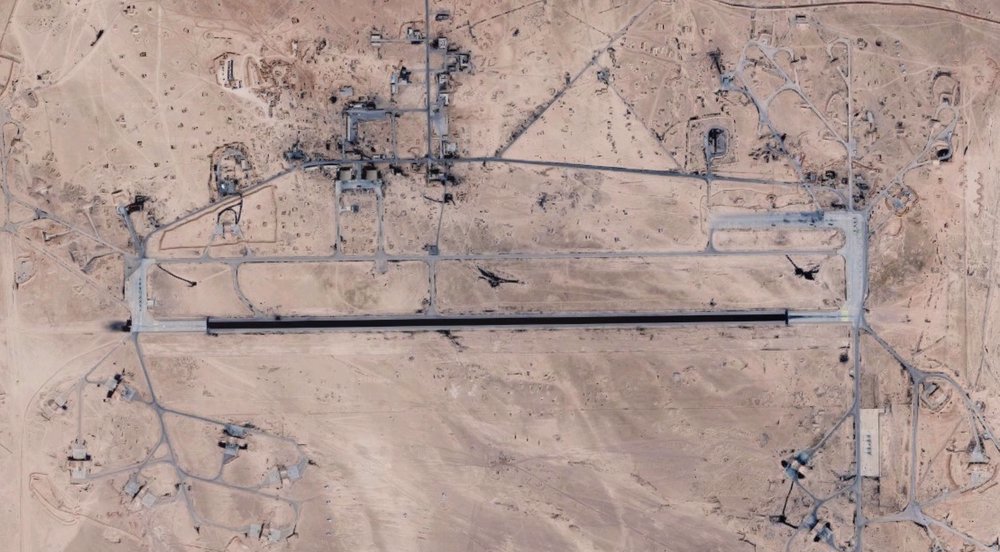
Turkey readies plans to take over Syria’s T4 airbase: Report
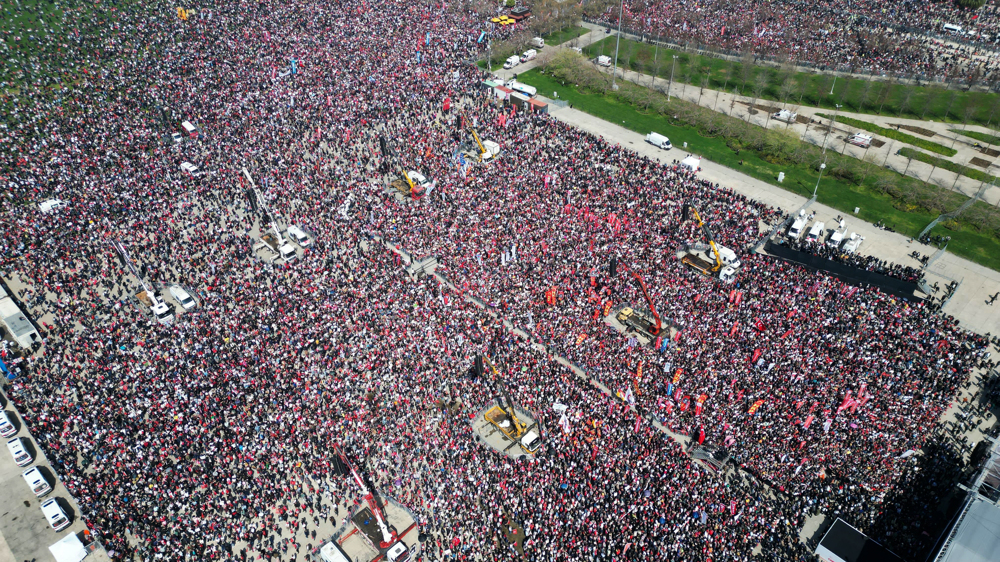
Hundreds of thousands rally in Istanbul to call for release of jailed mayor
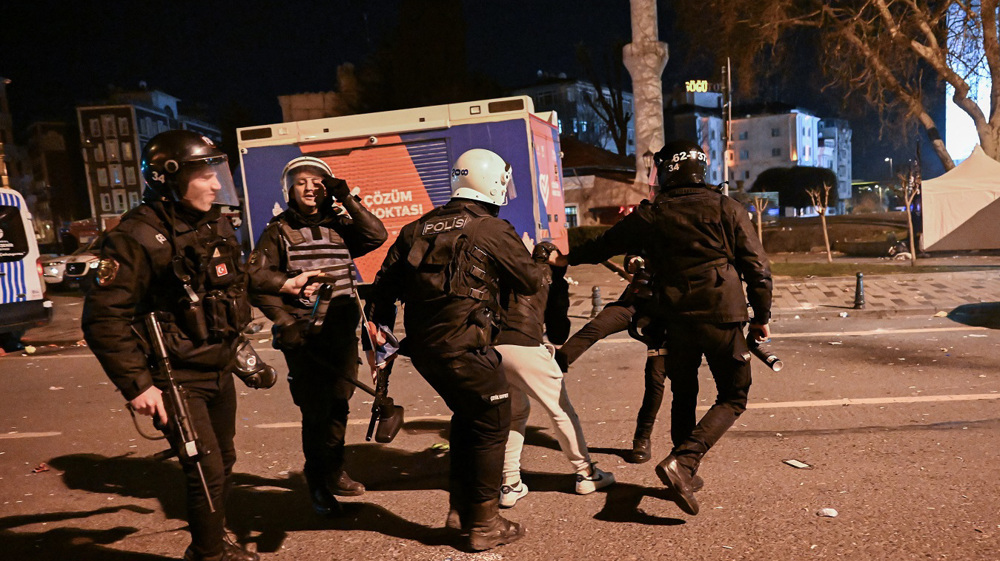
Over 1,400 arrested as protests continue in Turkey despite ban
VIDEO | Press TV's news headlines
'Kill zone': Report says Israel systematically destroyed homes on Gaza boundary
Palestinian Red Crescent calls for independent probe into Israeli massacre of medics in Gaza
Iran making heavy investment in buying GPUs: Official
Israel’s Netanyahu crossed all limits to stay in power: Gantz
China slams US for unilateralism, protectionism, economic bullying with tariffs
‘Cutting-edge’: Iran says Arash-2 suicide drone will wipe out all threats within 2,000km range
Top Israeli diplomat expelled from African Union summit


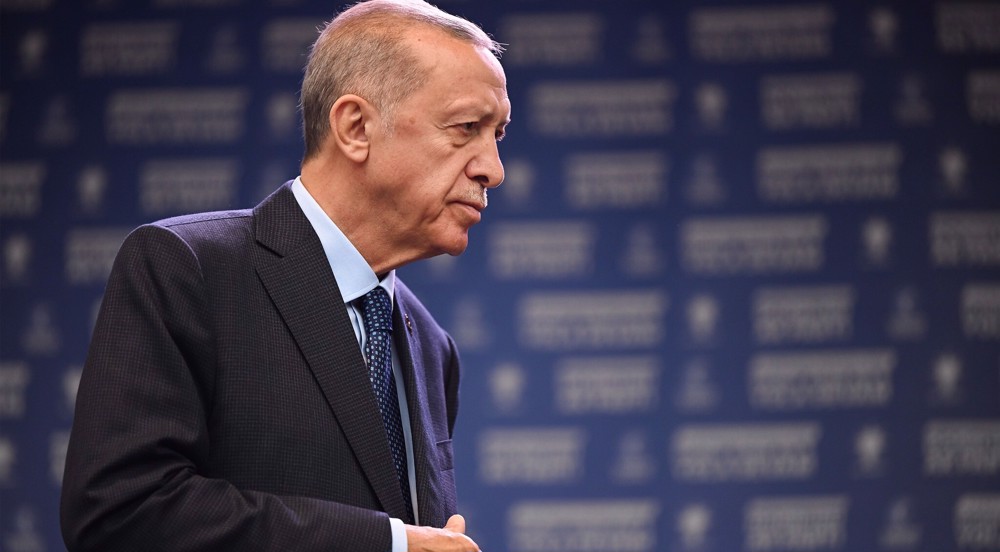
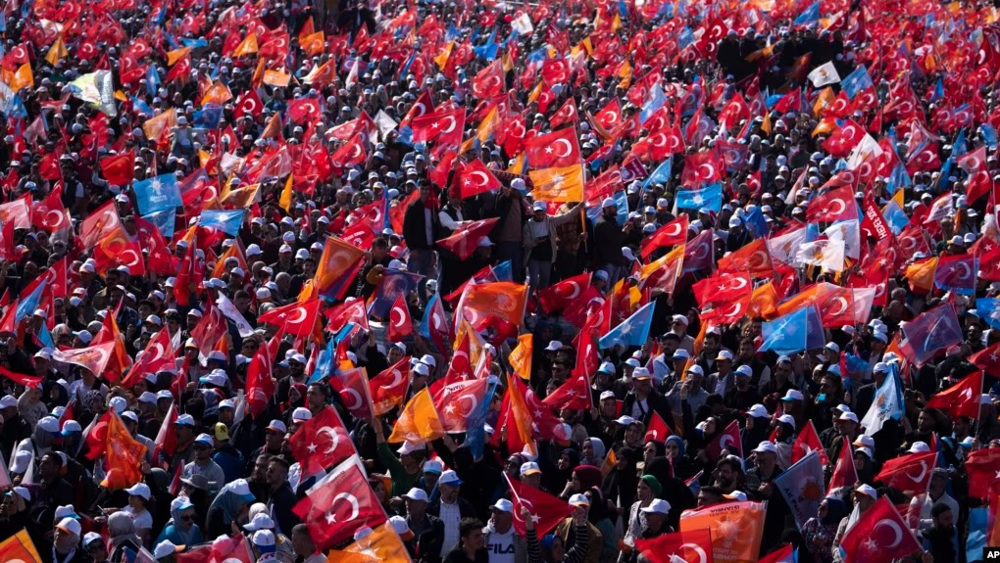




 This makes it easy to access the Press TV website
This makes it easy to access the Press TV website